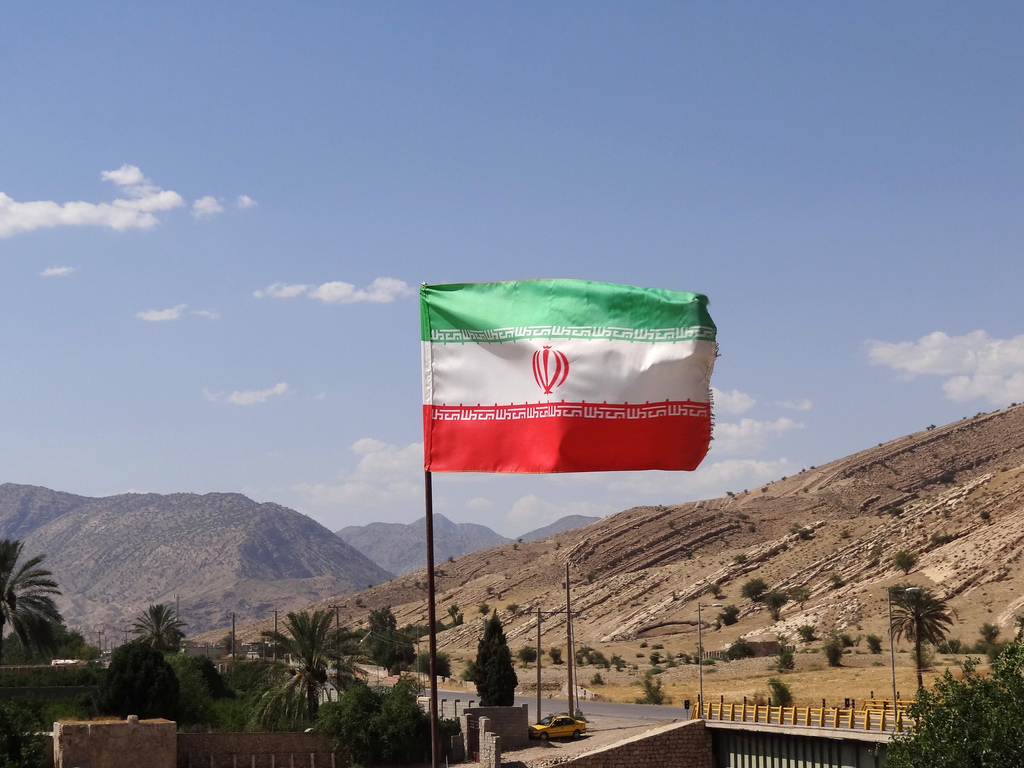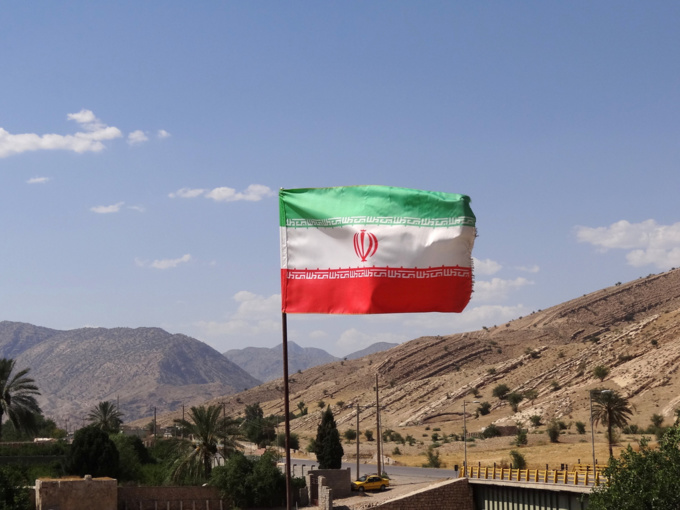Syrian Prime Minister Imad Khamis and Iran's First Vice President Eshaq Jahangiri are expected to sign a number of agreements (including a "strategic paper" on economic and cultural partnership) at a high-level meeting on economic cooperation to be held in the coming days. This was reported by the Iranian IRNA agency. The Iranian delegation, represented by experts from several ministries and headed by Deputy Minister of Transport and Urban Development Amir Amini, was in charge of the meeting held this week in Damascus. According to him, Tehran expects that Iranian investors and producers will play an important role in the post-war reconstruction of Syria.
The delegation's task was to agree on the last details of the "strategic paper", which brings together the previously signed agreements. We are talking about cooperation in the banking and customs sectors, the industrial sector, information technologies, creation of small enterprises, water supply networks and power transmission lines, as well as investments in all sectors of the Syrian economy, primarily those that require restoration.
According to the Minister of Economy of Syria Samer al-Khalil quoted by IRNA, Tehran and Damascus have agreements in many areas, but "most of them require revision, development and revitalization."
The official stressed that the economic ties between the two countries have not reached the level of cultural and public relations. In addition, he noted the need to create joint banks for trade development, as well as transition to local currency in mutual settlements in order to avoid negative consequences of US sanctions against the two countries.
The war in Syria has completely changed its economic and financial ties. In 2004-2010, the country was the fourth in terms of received investment from other Arab countries, primarily the Persian Gulf. The union between Syria, Turkey and Qatar was especially active. In particular, in 2008 Ankara allocated $ 6.3 million for 42 joint projects within the Syrian-Turkish interregional cooperation program. The trade turnover between the countries had grown approximately three times. In 2010, Syrian exports to Turkey reached about $ 662 million, imports - $ 1.85 billion. Iran's trade with Syria in this period amounted, according to the Iranian media, to about $ 500 million.
With the outbreak of the conflict in Syria, Iran was the only sponsor of the Syrian authorities. In January 2013, Tehran opened the first credit line for $ 1 billion, thanks to which the government was able to pay for imported food. Then, there was a loan of $ 3.6 billion for the purchase of petroleum products. The third loan of $ 1 billion was received in 2015. Tehran also allocated funds to Damascus to pay salaries to those civil servants, which helped to preserve state institutions in Syria. In 2012, an agreement on free trade began to operate between the countries, and in 2014 the commodity turnover rose to $ 1 billion (however, it fell again afterwards). The amount of Iran’s financing for Shiite troops fighting in Syria is unknown. According to the Arab newspaper Asharq Al-Awsat, Iran annually spends about $ 12.7 billion in Syria, including payments to its military advisors in Syria and pro-Iranian militias, as well as supply of weapons. Of this amount, less than $ 2 billion can be returned to Iran as a result of trade transactions, the newspaper notes.
At the same time, the Iranian media is increasingly questioning how much Tehran's investments in Syria will pay off, especially against the backdrop of the difficult economic situation in Iran itself.
In 2018, street protests shouted slogans such as "Leave Syria, take care of us". Now the authorities want to demonstrate that the Iranian investments were not in vain.
The delegation's task was to agree on the last details of the "strategic paper", which brings together the previously signed agreements. We are talking about cooperation in the banking and customs sectors, the industrial sector, information technologies, creation of small enterprises, water supply networks and power transmission lines, as well as investments in all sectors of the Syrian economy, primarily those that require restoration.
According to the Minister of Economy of Syria Samer al-Khalil quoted by IRNA, Tehran and Damascus have agreements in many areas, but "most of them require revision, development and revitalization."
The official stressed that the economic ties between the two countries have not reached the level of cultural and public relations. In addition, he noted the need to create joint banks for trade development, as well as transition to local currency in mutual settlements in order to avoid negative consequences of US sanctions against the two countries.
The war in Syria has completely changed its economic and financial ties. In 2004-2010, the country was the fourth in terms of received investment from other Arab countries, primarily the Persian Gulf. The union between Syria, Turkey and Qatar was especially active. In particular, in 2008 Ankara allocated $ 6.3 million for 42 joint projects within the Syrian-Turkish interregional cooperation program. The trade turnover between the countries had grown approximately three times. In 2010, Syrian exports to Turkey reached about $ 662 million, imports - $ 1.85 billion. Iran's trade with Syria in this period amounted, according to the Iranian media, to about $ 500 million.
With the outbreak of the conflict in Syria, Iran was the only sponsor of the Syrian authorities. In January 2013, Tehran opened the first credit line for $ 1 billion, thanks to which the government was able to pay for imported food. Then, there was a loan of $ 3.6 billion for the purchase of petroleum products. The third loan of $ 1 billion was received in 2015. Tehran also allocated funds to Damascus to pay salaries to those civil servants, which helped to preserve state institutions in Syria. In 2012, an agreement on free trade began to operate between the countries, and in 2014 the commodity turnover rose to $ 1 billion (however, it fell again afterwards). The amount of Iran’s financing for Shiite troops fighting in Syria is unknown. According to the Arab newspaper Asharq Al-Awsat, Iran annually spends about $ 12.7 billion in Syria, including payments to its military advisors in Syria and pro-Iranian militias, as well as supply of weapons. Of this amount, less than $ 2 billion can be returned to Iran as a result of trade transactions, the newspaper notes.
At the same time, the Iranian media is increasingly questioning how much Tehran's investments in Syria will pay off, especially against the backdrop of the difficult economic situation in Iran itself.
In 2018, street protests shouted slogans such as "Leave Syria, take care of us". Now the authorities want to demonstrate that the Iranian investments were not in vain.



















